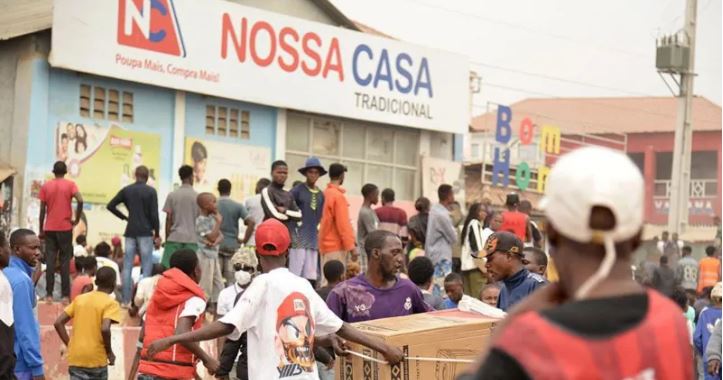A three-day strike by taxi drivers protesting a steep fuel price hike has spiraled into widespread unrest across the capital, Luanda, leaving four people dead and over 500 arrested, according to police reports.
The unrest began as a response to the government’s decision to raise diesel prices by over 33% in early July a move aimed at phasing out fuel subsidies in the oil-rich nation. The increase has triggered higher transportation costs and a surge in prices of essential goods, intensifying economic hardship for many Angolans.
What started as a planned strike by taxi operators quickly grew into one of the most disruptive protest movements in recent years. On Monday, thousands took to the streets, blocking roads, looting shops, and clashing with police. Protests continued on Tuesday, with further confrontations and widespread business closures.
“This is not just about petrol anymore,” said local activist Laura Macedo. “Hunger is everywhere, people are miserable, and they’re tired of being ignored.”
The average Angolan earns around 70,000 kwanzas ($75) per month. A promised increase to 100,000 kwanzas has yet to materialize, further fueling public outrage. Demonstrators also voiced frustration over nearly 50 years of rule by the MPLA party, demanding broader political and economic reforms.
President João Lourenço has downplayed the public’s concerns, insisting that diesel prices in Angola remain among the lowest in the world, and accusing protestors of using the issue to destabilize the government.
Despite negotiations between authorities and some taxi unions, major protests erupted regardless. The National Taxi Drivers’ Association (Anata) has condemned the violence but maintains the strike, calling it a reflection of the people’s struggle.
The MPLA has condemned the unrest as “acts of vandalism” that threaten national unity ahead of the 50th anniversary of Angola’s independence.
With police continuing to patrol the streets, Luanda remains tense. Many businesses are shuttered, and daily life is heavily disrupted as citizens wait for resolution and relief.

